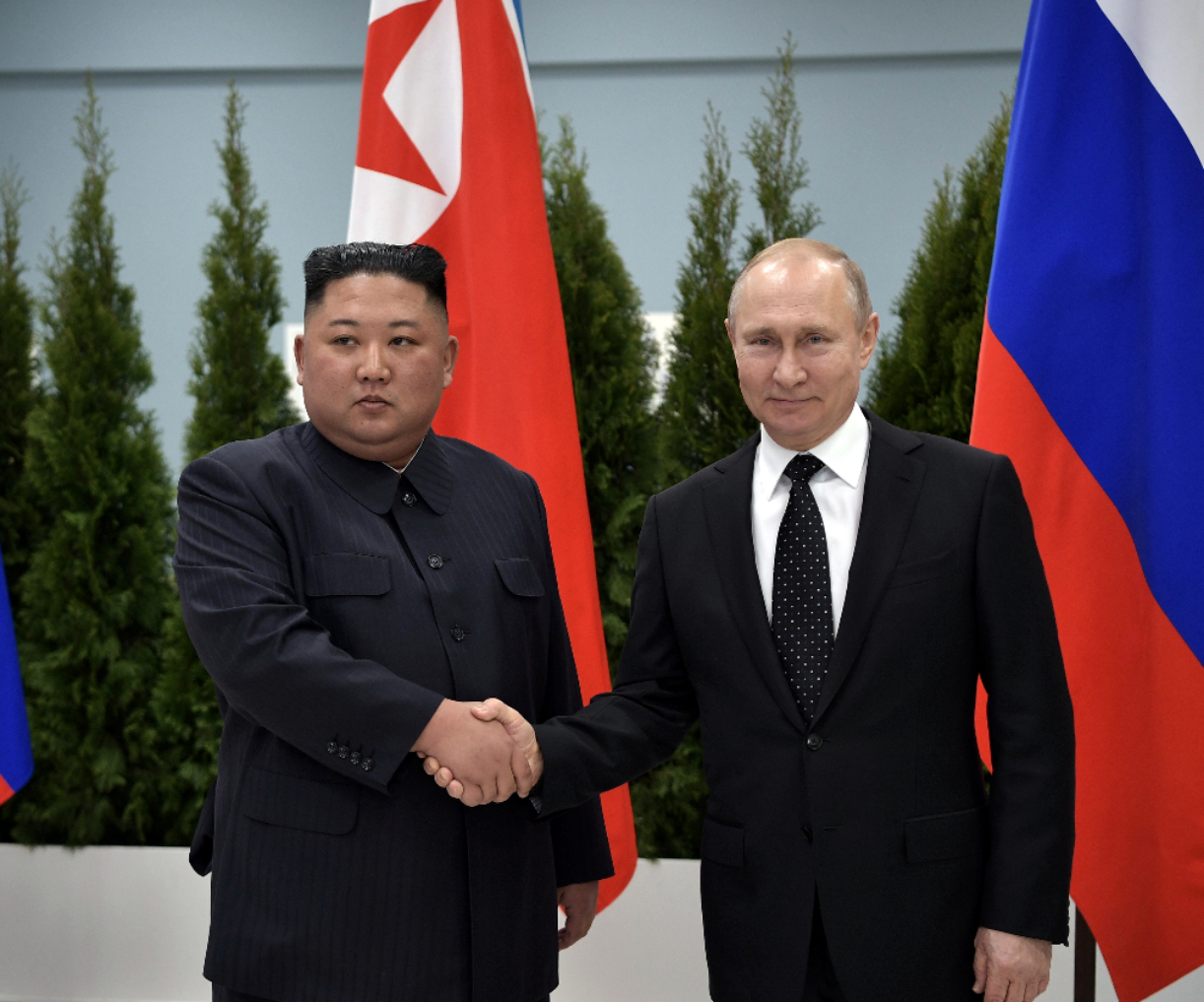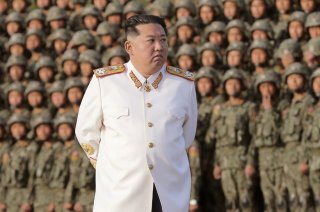Russia’s Alliance with North Korea: Balancing Military Inferiority with Recklessness
The effect of the Russian alliance with North Korea has often been perceived as limited to North Korea's bargaining with the West and its assistance to Russia in the war with Ukraine through military equipment. However, this alliance challenges some of the premises of U.S. nuclear deterrence, concepts the United States has developed over time, overconfidently assuming that the U.S. construction of the levels of escalation was shared by its enemies.
The effect of the Russian alliance with North Korea has often been perceived as limited to North Korea's bargaining with the West and its assistance to Russia in the war with Ukraine through military equipment. However, this alliance challenges some of the premises of U.S. nuclear deterrence, concepts the United States has developed over time, overconfidently assuming that the U.S. construction of the levels of escalation was shared by its enemies.
The U.S. concept of deterrence is based on punishment and the denial of victory across all levels of escalation imagined within its strategic framework. Focusing on the ability to counterstrike in all possible scenarios follows the wisdom of Thomas Schelling while emphasizing the ability to deny victory to U.S. enemies reflecting the ideas of Herman Kahn and Reinhard Selten.

Recent Russian threats to use nuclear weapons, combined with the Russian alliance with North Korea, suggest that the latter element of the doctrine may not be realistic. There are no guarantees that the Russian-North Korean alliance envisions the same kinds of levels of escalation as the U.S. strategy does. More concerning, Russia and North Korea might imagine a form of escalation where recklessness, rather than the military capacity to fight wars at various levels of intensity, yields power.
The fourth article of the Russian-North Korean Treaty on Comprehensive Strategic Partnership from June 2024 commits both countries to, “provide military and other assistance with all means at its disposal,” if the other is attacked.
However, Russia and North Korea have not yet even started to develop the kind of military interoperability that would enable them to engage in wars at different levels of escalation with the United States. It seems the two countries are not preparing for the kind of wars that the U.S. military plans to deny victory in. Russia may use tactical nuclear weapons against Ukraine if it cannot win the war without them, but it is not planning or threatening nuclear warfighting against NATO countries.
Instead, Putin is threatening a punitive counterstrike if Russia's territory is massively attacked, even with conventional weapons, by Ukraine, a country that fights Russia alongside nuclear powers, such as NATO. Putin claims this would be a counterstrike since, “aggression against Russia by any non-nuclear state, but with the participation or support of a nuclear state, [will] be considered as their joint attack on the Russian Federation.” Putin emphasizes that such a punitive nuclear strike may not target only the conventional military power, Ukraine, but could also target NATO powers, even the U.S.
By skipping the levels of escalation the U.S. imagines, levels where Russia would not receive help from North Korea and would undoubtedly be defeated by the U.S. and its allies, Putin appears to threaten a strike targeting civilians. Such a punitive counterstrike could still be limited, possibly taking out only one Ukrainian city and/or one NATO city.
Skipping nuclear warfighting options is rational for Russia, given its weaker warfighting capacity compared to the full might of NATO. However, Russia possesses nuclear missiles capable of destroying any Western city. This offsets U.S. and NATO military superiority in the type of deterrence Russia engages in.
In such a context, the one who fears nuclear catastrophe more, i.e., who has a higher subjective sense of strategic risk, is more likely to make compromises to avoid it, as Schelling advises. Here, the objective military balance is less relevant than the subjective fear of war. If Putin has not yet managed to demonstrate his recklessness, an alliance with North Korea should add that dimension to Russian deterrence: in a time of escalation and extreme tension, Kim Jong-un may no longer be rationally fearful of a nuclear war.
Furthermore, in nuclear bargaining, the order of moves is crucial. The party forced to choose between yielding or making a move toward an all-out nuclear war stands in a weaker position. After a Ukrainian conventional missile strike on Moscow and other Russian cities with NATO assistance, Russia might launch a nuclear counterstrike against a Ukrainian city or civilian infrastructure, possibly also targeting a NATO city or U.S. space-based strategic assets, while threatening a more comprehensive nuclear attack against civilian targets if NATO escalates further.
The ball would then be in the U.S.'s court, and the leverage would no longer be based on military strength but on a willingness to risk civilian lives. In such a scenario, Russia’s alliance with North Korea could be advantageous, given the image of recklessness and insensitivity toward civilian suffering associated with North Korean leadership.
Thus, the alliance between Russia and North Korea has not made either country significantly more powerful militarily. However, it has highlighted aspects of nuclear deterrence, particularly the influence of recklessness as bargaining leverage, that U.S. military power and nuclear doctrine have not paid attention to.
There is no safety in nuclear superiority if the enemy still can inflict an unacceptable level of destruction. Therefore, rather than acting on overconfidence based on military superiority, it might be a safer strategy for the U.S. to attempt to “get along with” other nuclear powers, such as North Korea and Russia, as Donald Trump has suggested.
About the Author
Timo Kivimäki is a professor of international relations at the University of Bath, United Kingdom.
Image Credit: Creative Commons and/or Shutterstock.


